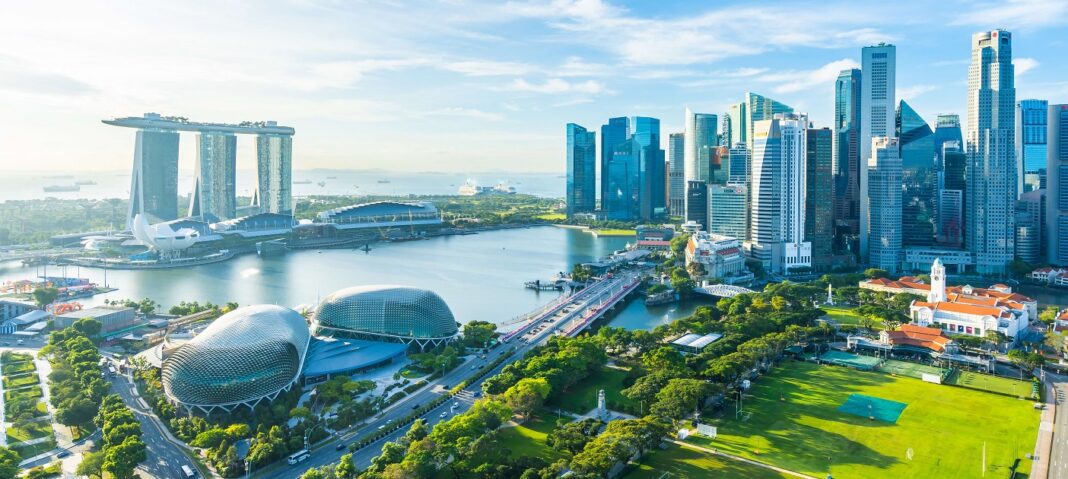In a strategic move aimed at navigating the complex economic landscape while addressing local concerns, Singapore has unveiled a series of tax changes and revenue-raising measures in its budget announcement. The nation’s Finance Minister, Lawrence Wong, announced these initiatives in the backdrop of Singapore’s emergence from the economic downturn caused by the pandemic. The nation grapples with a delicate balancing act: preserving its global financial hub status while managing growing concerns about wealth inequality and the increasing cost of living.
One of the key changes is a long-anticipated increase in the goods and services tax (GST). Wong revealed that the GST will be incrementally raised, starting with an increase to 8% from January of the upcoming year, followed by another hike to 9% in 2024. This move seeks to bolster the government’s coffers and reflects Singapore’s commitment to funding essential services and addressing the needs of its rapidly aging population.
In a bid to create a more equitable revenue structure, the Singaporean government has set its sights on higher-income segments. The plan includes a hike in income taxes for individuals with substantial earnings. Moreover, taxes on residential properties will be increased, alongside higher levies on luxury vehicles.
Wong explained, “These tax adjustments will help to raise additional revenue and also contribute to a fairer revenue structure.”
Singapore’s decision to raise revenues is motivated by its projected future expenditure, which could escalate to over 20% of the country’s gross domestic product (GDP) by 2030. This projection is particularly relevant as Singapore amplifies its healthcare spending to cater to the unique challenges posed by its rapidly aging population.
Over the past couple of years, Singapore has allocated a significant amount, around S$100 billion (approximately $74.5 billion), to provide a safety net for its citizens, support businesses, and stabilize the economy in response to the impact of the COVID-19 pandemic. To continue this support, Wong announced an additional package worth S$500 million ($372 million) to bolster job security and aid businesses as part of his budget proposals. Additionally, the government plans to allocate S$560 million to alleviate the increasing cost of living for Singaporeans.
Despite its strategic financial moves, Singapore anticipates an overall deficit of S$5 billion for 2021. The surprising element of Wong’s budget speech was the unexpected forecast of a deficit of S$3 billion for 2022. This deviates from analyst expectations, many of whom predicted a return to a surplus. Total expenditure for 2022 is projected at S$102.4 billion, a notable increase from the previous year’s S$98.4 billion.
The budget’s expansionary nature reflects the government’s acknowledgment of the ongoing unevenness in the economic recovery. Analysts have praised this approach, recognizing that Singapore’s economy heavily relies on global trade. The nation is projected to achieve a growth rate of 3-5% this year as it progressively reopens its borders and relaxes COVID-19 restrictions. This trajectory follows a 7.6% growth in 2021, marking a substantial rebound from the record contraction experienced in the previous year.
While Singapore’s overall economic recovery is promising, certain sectors such as aviation and tourism face a longer road to recovery, with concerns related to the persistent presence of the virus. To address these complexities, Wong announced plans to direct approximately S$9 billion ($6.70 billion) over the next five years toward initiatives designed to support low-wage workers. The government also intends to bolster digital capabilities for both businesses and employees.
In its commitment to achieving net-zero emissions, Singapore will escalate carbon taxes starting from 2024. This reflects the broader global trend of incorporating environmental considerations into financial strategies and policies.
Addressing the corporate tax landscape, Wong highlighted the need for the corporate tax system to evolve in the wake of the global consensus on a minimum corporate tax rate. Singapore is considering a move that could increase the effective tax rate for multinational companies to 15%. Currently, Singapore boasts a corporate tax rate of 17%, though it offers incentives and schemes that effectively lower this rate for many companies.
Wong acknowledged the government’s vigilance in monitoring the risks associated with rising inflation. Factors such as the recovery of global demand, ongoing supply chain disruptions, and escalating energy prices contribute to these concerns. The government has allocated a package worth S$6.6 billion to mitigate the impact of the impending GST hike.
The Monetary Authority of Singapore took the unprecedented step of tightening its policy settings in January, marking its first out-of-cycle move in seven years. As the economic recovery gains momentum and prices rise, the central bank is expected to continue tightening its policies in the upcoming policy meeting scheduled for April.
In conclusion, Singapore’s budget announcement reflects a strategic approach to managing its economic recovery while addressing societal concerns. The proposed tax changes and revenue-raising measures signal a commitment to fostering a more equitable revenue structure, supporting citizens and businesses, and positioning Singapore as a global financial hub. This budget emphasizes the nation’s adaptability and resilience in navigating complex economic challenges while ensuring that the well-being of its citizens remains at the forefront of its financial strategies.












